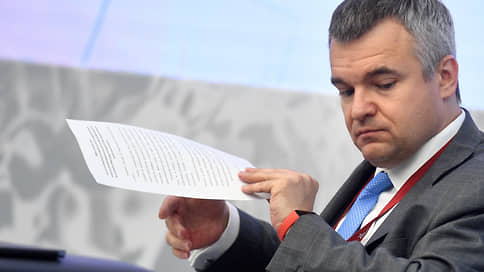Electronics will start from scratch – Newspaper Kommersant No. 168 (7369) of 09/13/2022
[ad_1]

The Ministry of Industry and Trade has prepared an updated concept of state policy for the development of Russian microelectronics until 2030. In the document, officials recognize the key problems of the industry: a serious technological gap, dependence on foreign technologies and factories, and an acute shortage of personnel. To remedy the situation, it is proposed to increase production capacity, expand fundamental research and, in fact, create profile engineering from scratch. Market participants and experts do not argue with the basic logic of these plans, but emphasize that right now the industry needs not a beautiful strategy, but emergency assistance.
At the disposal of “Kommersant” was the draft “Fundamentals of the state policy of the Russian Federation in the field of development of the electronic industry for the period up to 2030 and beyond.” According to a Kommersant source in the government, this is a new strategic document, on the basis of which the authorities expect to build the further development of the industry. Its development, the interlocutor of Kommersant clarified, was supervised by Deputy Minister Vasily Shpak, who sent the draft last week for approval to a number of departments. The document is planned to be publicly presented at the Microelectronics-2022 forum in October. The Ministry of Industry and Trade and the Ministry of Digital Transformation did not respond to requests from Kommersant.
The document quite self-critically lists the acute problems of Russian microelectronics: technologies lagging behind the world level by 10–15 years, difficulties in mastering technological processes below 180 nm, lack of production capacity, critical dependence of design and production processes on foreign technologies, including software, and materials (in particular, high-purity chemistry and silicon), the inability to provide the market with the necessary electronics, low investment attractiveness, the high cost of manufacturing components in the Russian Federation, and an acute shortage of personnel. Attempts to shift the blame to some external enemies, however, also exist, for example, “unfair competition from foreign electronics suppliers” is noted.
The Ministry suggests that market participants coordinate “research in the field of advanced technologies”, increase capacities “including through the development of microelectronics production with modern topological standards”, create (virtually from scratch) an electronic engineering industry and, finally, abandon foreign architectures in the design of electronics .
The tools for solving these problems look less impressive and ambitious: manufacturers will have easier access to grants, subsidies and soft loans to stimulate off-budget investments. All this, according to the plan of the Ministry of Industry and Trade, will happen before 2030, and then the reborn Russian microelectronics will begin “expansion to international markets.”
Kommersant’s interlocutors, close to the Ministry of Industry and Trade, say that the new document should “globally establish the goals of the state in the industry.” “We determine by state policy where we are going, by the industry development strategy – how we are going, and by the national project – with the help of what resources we are going,” explains one of the developers of the document. But, proceeding from this logic, the sequence of development of the relevant documents raises questions. The fact is that the strategy for the development of the electronics industry until 2030 was developed at the beginning of 2020, the government began work on the core national project, the implementation of which will cost 3.2 trillion rubles, in February 2022, shortly Ukraine. And state policy, it turns out, is being formed only now, already in radically changed conditions.
The government, judging by the draft document, seeks to build a vertical management of the industry on a national scale and project its long-term development, said Arseniy Brykin, general director of the Basis consortium. “On the basis of these theses, the Ministry of Industry and Trade will form specific activities and initiatives, but so far the document looks more like a set of common goals and objectives.”
Kommersant’s interlocutor in a major microelectronics manufacturer emphasizes that “resource support for state policy is not obvious.” Meanwhile, he emphasizes, now the industry requires “not strategic predictions, but emergency measures: financing, assistance in expanding production and large investments in the development of local infrastructure, and not the continuation of subsidies and government contracts that three or four court design centers receive.”
[ad_2]
Source link





